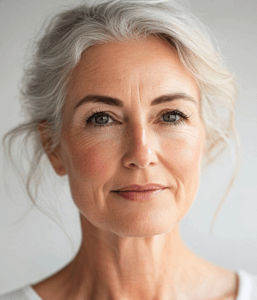
Master Your Sleep & Be More Alert When Awake – Andrew Huberman
Dr. Andrew Huberman, a professor of neurobiology and ophthalmology at Stanford School of Medicine, dives deep into the crucial role sleep plays in our mental and physical health on his Huberman Lab Podcast. He emphasizes that “sleep and wakefulness govern everything about our mental and physical health”. This statement sets the stage for understanding the dual nature of sleep and wakefulness as integral elements that shape our overall health.
Unraveling Adenosine: A Chemical Regulator of Sleep
One of the most striking insights from the podcast is the role of adenosine—a chemical that builds up in our brain the longer we are awake, promoting sleepiness. Dr. Huberman explains, “Adenosine creates a sort of sleep drive or a sleep hunger…the longer you’ve been awake, adenosine levels are going to be much higher“. This accumulation is a natural mechanism that dictates when and how we feel the urge to sleep, likening it to a hunger that grows as we expend our waking hours.
Adenosine’s interaction with caffeine provides a practical illustration of its function. Caffeine acts as an adenosine antagonist, effectively blocking these sleep signals and thus temporarily warding off drowsiness. This process underlines why we often feel a sudden crash as the effects of caffeine wear off—the suppressed adenosine floods its receptors, and we feel an overwhelming wave of tiredness.
Enhancing Sleep Quality through Environmental Control
The discussion about the importance of our sleeping environment brought up by the endorsement of Helix mattresses during the podcast highlights an often-overlooked aspect of sleep hygiene. Ensuring the right sleep setup—whether it’s the mattress, the room temperature, or the ambient noise level—is crucial for enhancing sleep quality. Dr. Huberman points out, “having the proper sleep environment, both the environment you’re sleeping in and the object you’re sleeping on, is critically important to getting a good night’s sleep“.
Furthermore, Dr. Huberman elaborates on the nuanced benefits that an optimized sleep environment can provide, particularly regarding the type of mattress and its alignment with individual sleep needs. He notes the customization potential of mattresses like those offered by Helix, which are designed to cater to personal preferences and physical requirements. This personalization can significantly mitigate sleep disturbances and enhance sleep quality. As he explains, “Helix mattresses are matched to your specific sleep needs…once I switched to a Helix mattress that was precisely matched to my sleep needs, I found I could sleep through the night, which has made a tremendous difference for me”. This testimony underscores the critical impact of tailored sleep solutions in achieving restorative sleep.
The Impact of Light on Sleep and Wakefulness
Light exposure, particularly sunlight, is critical in regulating our sleep-wake cycles through its effect on hormones like cortisol and melatonin. Dr. Huberman suggests a routine that involves exposing oneself to sunlight early in the day to properly set the body’s internal clock, which in turn facilitates better sleep at night and heightened alertness during the day. He states, “You want as much light as is safely possible early in the day…and you want as little light coming into your eyes after, say, 8:00 p.m.”. This advice is actionable and straightforward, emphasizing the importance of syncing our biological clocks with the natural light-dark cycle.
Conclusion
The interplay between sleep and wakefulness encompasses various factors, from the biochemical to the environmental. Understanding and manipulating these can significantly improve our health and daily functioning. As Dr. Huberman articulately puts it, the balance of sleep and alertness is not just about feeling rested—it’s about resetting our capability to function optimally in our waking hours.





